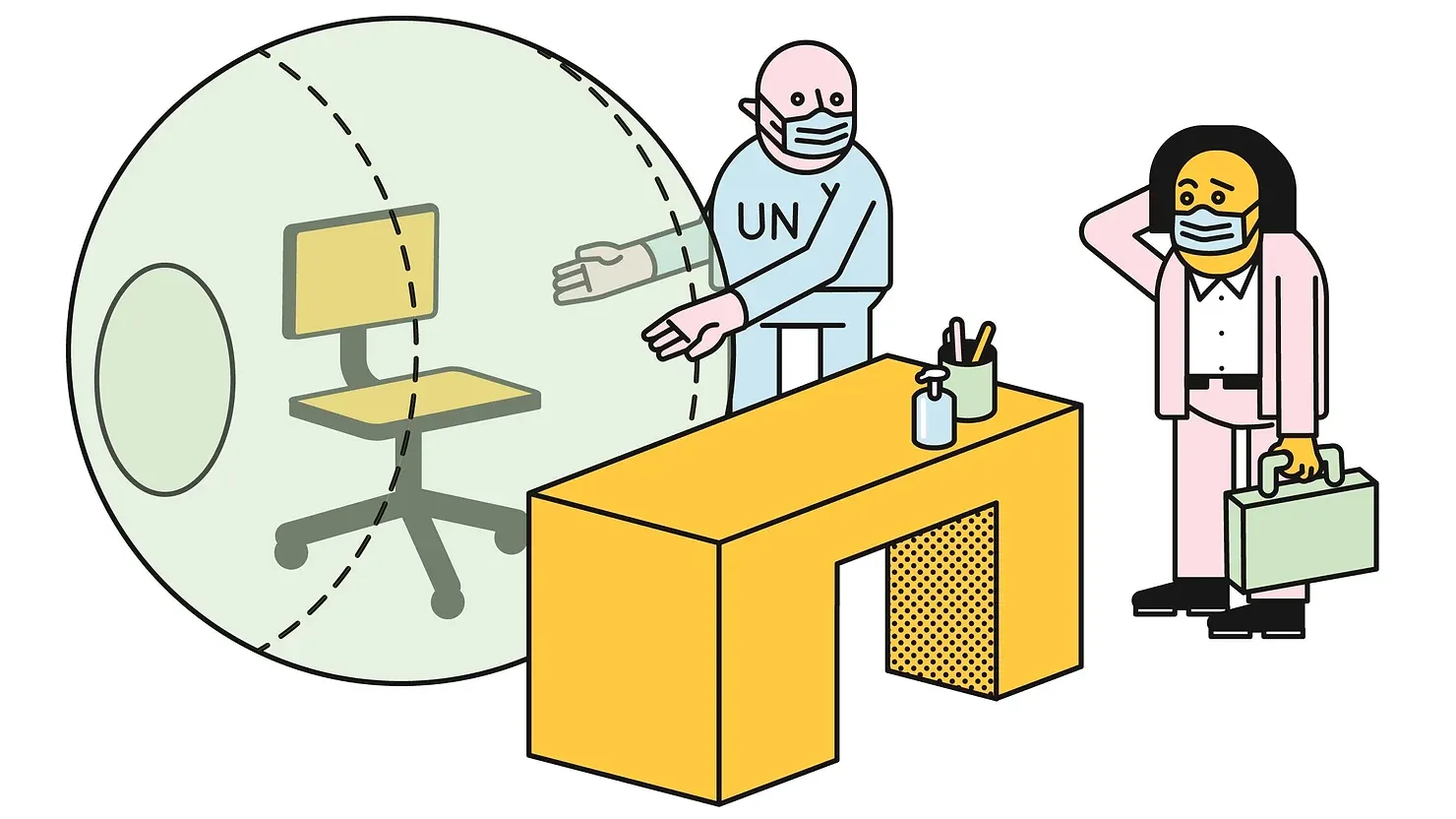The UN's got the Open Space Blues. Again
Open-space offices and hot-desking, once the go-to model for the office design industry, have recently and widely been declared the dumbest mistake in office design of the 20th century. Enter Covid-19, and every organization with an open-space office has a big and urgent problem on its hands.
Open-space offices and hot-desking, once the go-to model for the office design industry, have recently and widely been declared the dumbest mistake in office design of the 20th century. Enter Covid-19, and every organization with an open-space office has a big and urgent problem on its hands. In Geneva, one of the largest organizations with one of the largest problems is the UN. The Geneva Observer has already reported on it. It's just gotten much worse.
"The pandemic is putting the hot-desking and open-space policy in a completely different perspective," Prisca Chaoui, Executive Secretary of the Staff Coordinating Council, tells me. "To our previous concerns about the quality of the workplace, we now need to take into account the sanitary question. There is abundant literature on how open-space offices might significantly contribute to the spread of the virus. We have surveyed the UN staff, and the results are quite clear: teleworking is not a feasible long-term option for most UN staff, and many employees are keen to come back to work. Yet they are extremely apprehensive at the idea of having to move into an open-space environment." UNOG Director Tatiana Valovaya hears those concerns. "It's a very welcome change," admits Prisca Chaoui, "the level of consultation is encouraging."
"I understand staff awareness and anxiety regarding open space," confides Tatiana Valovaya to UNToday. She admits not having much wiggle room, however. "We have serious limitations" between the SHP budget and program, the General Assembly decision on flexible working space, "all these things that cannot be changed, and so we have to implement the solutions that can be found through discussions."

A severe liquidity problem
At a moment when the UN is facing severe liquidity problems, this is enormously consequential. The open-space policy decided by the UN was largely based on economic considerations. By increasing the density of employees in its new offices, UNOG would save significant rental costs, about 1.2 million in the single case of the Palais Wilson, home to the Office of the UN Office of the High Commissioner for Human Rights. The savings would go against the costs of the CHF 836 million project, half of it financed by an interest-free loan from Switzerland.
The scarcity of financial resources and the likely pressure by Member states to demand further savings make the situation particularly difficult at this point for UNOG. In the end, it might lead to an increase in teleworking or to the implementation of a rotation scheme to permanently reduce the number of people working simultaneously in the new H building.
It is safe to assume that the way the UN handles the situation will be observed, given its commitment to upholding health and occupational safety standards. The delay in the construction of the H building might also be helpful to learn from other experiences, for the UN is not alone.
"How do we `dedensify` to create the physical distancing that we now need to have?"
"From the standpoint of making significant physical changes, everyone's in a sort of wait-and-see mode," acknowledges Chris Boldoff, a partner in a large American architectural firm, quoted in Bloomberg.
But, as open-space offices become a public health danger and physical distancing becomes the new norm, most experts agree that the trend that has prevailed over the last twenty years will have to be entirely reversed, starting with the so-called "densification" of the office, which "will take a hiatus as we'll shift to, how do we "dedensify" to create the physical distancing that we now need to have?'" according to a workplace designer quoted by Vox.
The stakes are high. The estimated 300 billion architectural industry is already hard at work, not wanting to miss what it sees as a massive business opportunity. In what looks like the marketing coup of the moment, Cushman Wakefield, a global American real estate company, has developed a much talked about "6 Feet Office" picked up as an example by the World Economic Forum and featured in the global press. Cushman Wakefield's Amsterdam office has been turned into a showroom. And where did its designers and office planner get their inspiration? "We are drawing on our work getting back millions of people to the office in China," claims one of the company's sales pitch.
-PHM
